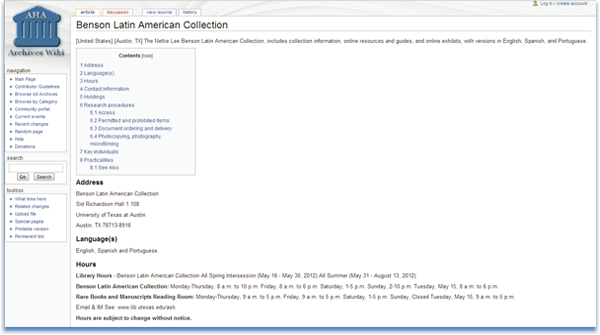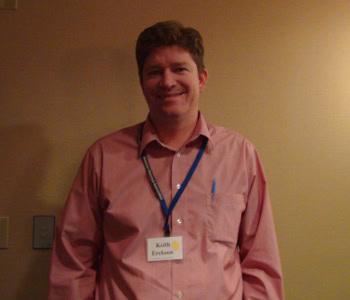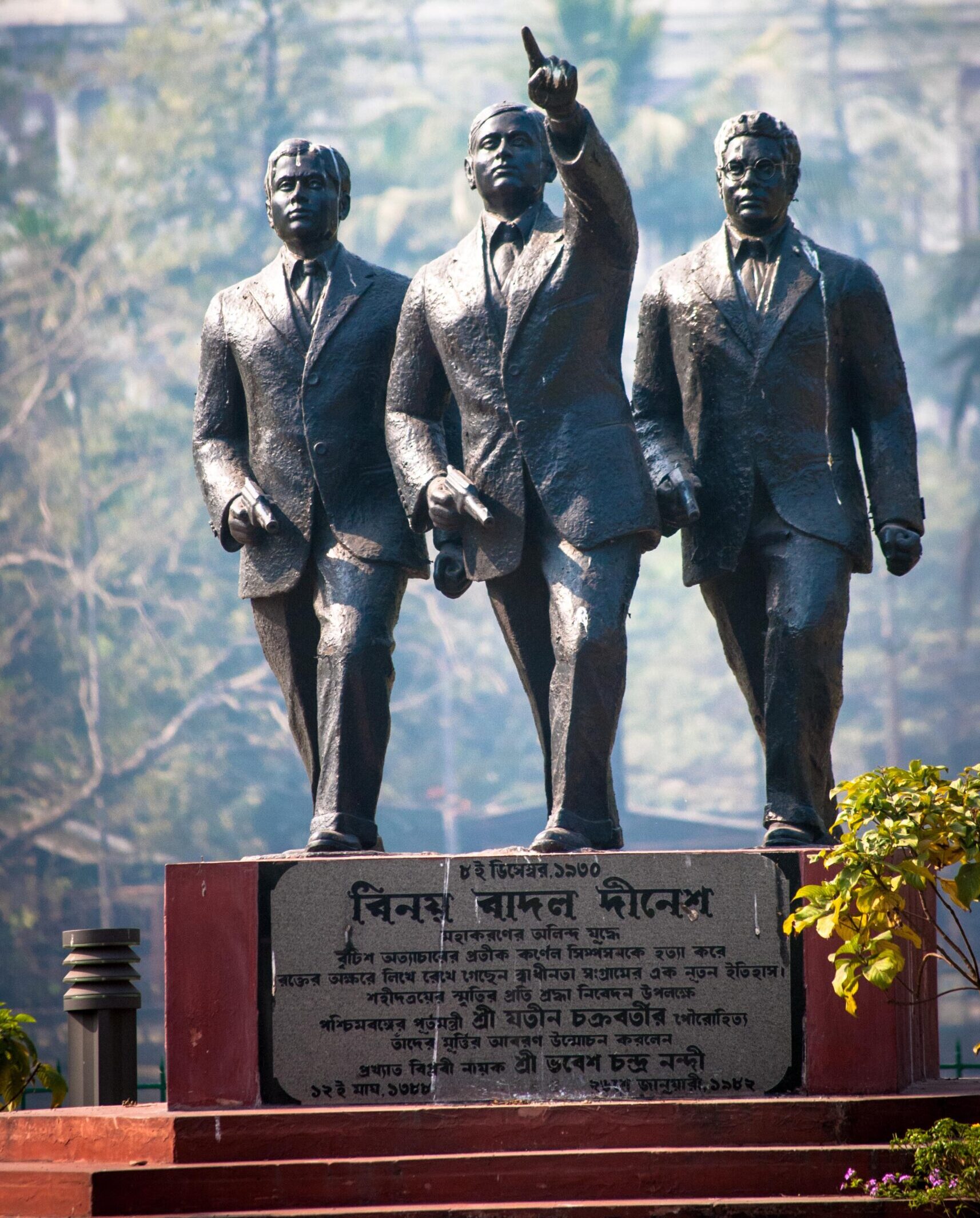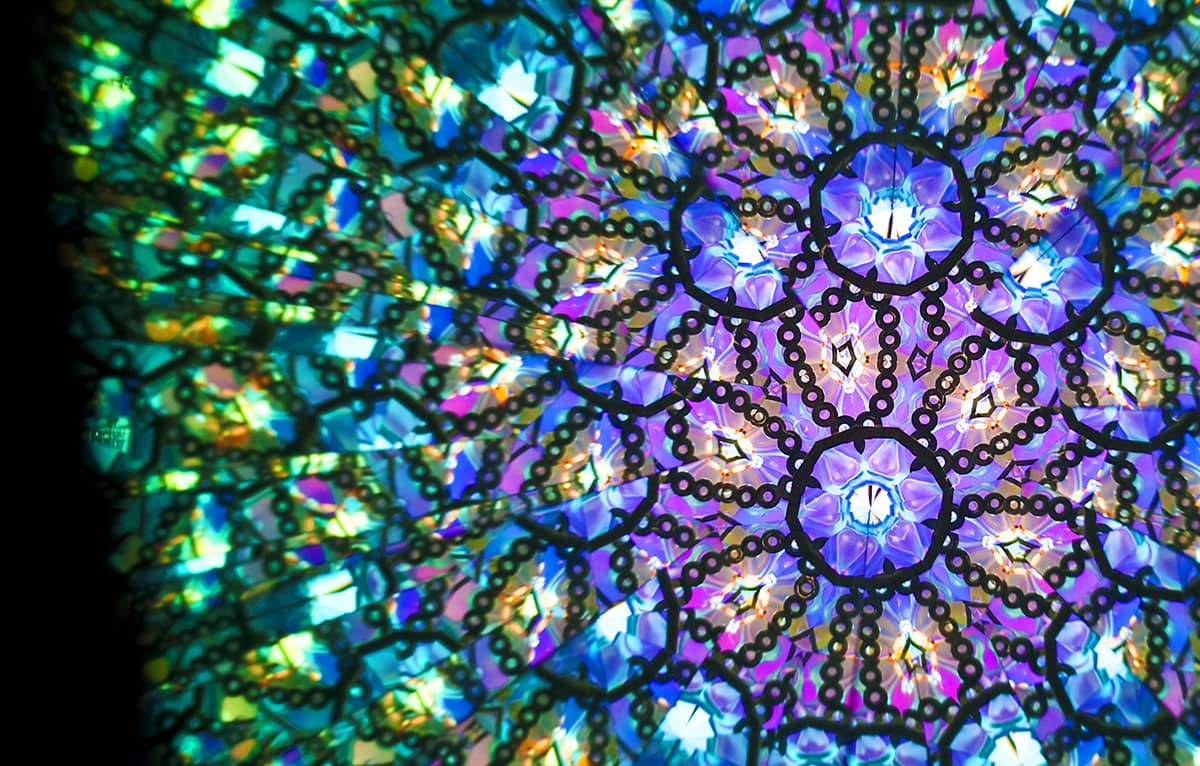Note: The AHA’s ArchivesWiki is no longer active.
Over the past two decades, our understanding of “historical thinking” has been greatly enriched by cognitive science research that has illuminated how novice history learners encounter sources and comprehend historical context. These insights have proven particularly effective when applied to K–12 classrooms and introductory history courses.1 But an oft-unmentioned dimension of cognitive science research is its limited applicability to the training of advanced history students. Cognitive science experiments elicit their clearest findings by contrasting the thinking of novices with experts. As a result, they tell us much about the differences between faculty and freshmen and less about how to move historians-in-training from encountering historical thinking to practicing it.2

AHA’s ArchivesWiki
In recent years I have been working out the implications for teaching more sophisticated acts of historical thinking that combine intensive archival research with public presentation of findings.3 The issue became an imperative, however, when I was assigned to teach my department’s required doctoral-level course on history teaching and learning. How could I help doctoral students understand archival research (especially those who had not done any yet)? How could I help them master it well enough to be able to teach archival research to upper-level students after landing tenure-track jobs?
I found one answer to these questions when I learned of the AHA’s new Archives Wiki. The site announces its intention “to be a clearinghouse of information about archival resources throughout the world.” Further, “it is primarily designed to be useful to historians and others doing historical research.” I was excited by the possibility of extending that usefulness to doctoral students who need to learn both about historical research and about how to teach it.
Assignment Design and Introduction
Archives Wiki offers several useful dimensions for an assignment with the primary objective of placing the doctoral students in the position of practicing historians. First, because Archives Wiki is sponsored by the AHA, it shifts the nature of the assignment from “doing what my teacher wants” to “contributing to the collective profession.” Further, because the site has its own rules for submissions, it shifts the authority out of the classroom to an external entity—students are not simply submitting their work to me but to the AHA. Third, I valued the site’s user support resources which allowed me to push students out of their comfort zone without leaving them on their own. Finally, the fact that the project rests on a wiki platform adds a digital humanities element to the experience that I hoped would be useful, especially to those students who had not previously contributed to a wiki.
I added one twist to the assignment. In this era of Google “research,” I wanted the students to speak or at least correspond with an archivist, hoping it would help break the ice in meeting the staff of an archive where the students might conduct their doctoral research. I wanted them to discover that archivists know the secrets that Google and online catalogs do not.
The written directions to the assignment were intentionally brief: “Consult with an archivist and then contribute an entry to the AHA’s Archives Wiki on your assigned archive,” together with a link to the site. This wording reminded me of the brief directions that the H-Net computer sends whenever I agree to review a book. The wording likewise imitated the effect of the terse email I received from my most recent publisher who congratulated me on having my book accepted for publication, directed me to follow all of the guidelines and instructions in the fourteen attached files, and reminded me not to submit the manuscript late. I wanted this assignment to reflect the abrupt instructions that the students will later receive as professional historians.
On the first day of class I tried to remain brief. I showed the Archives Wiki site on the screen, read the assignment instructions aloud, emphasized the due date that was three months away, and provided the hint that entries could not be posted the night before so they had better start early. I also pointed out that they would not have to generate all of the text, but rather ask the archivist for permission to adapt information that will already be available in some format. During this first session I also invited students to name archives they planned to visit for their dissertation research and assigned each student a unique but personally relevant archive. Whenever students asked questions—such as whether to write in English or Spanish—I referred them to the wiki site. Beyond that, I said no more about the assignment in class other than to remind of the approaching due date.
Assessing Student Performance
I divided my feedback to students into two categories—a “Wiki Student Grade” and a “Scholarly Assessment.” The student grade was determined by evaluating the quality of the entries in reference to the Archives Wiki “Contributor Guidelines.” In my evaluation, I checked to see that entries were complete, that all recommended issues were addressed, and that the proscribed format was followed. I also checked the functionality of links and whether the topics identified on the page’s “Contents” were present on the page and in the same order as indicated.
The “Scholarly Assessment” feedback offered my frank advice as a colleague. I have worked as an editor for nearly a decade and have often heard historians recycle (and exceed) the excuses of their students for missing deadlines. In this advice—which did not factor into the students’ grades—I pointed out whether or not they had met the deadline in a timely and satisfactory manner. I also made tentative predictions about the extent of editorial oversight they would need to perform scholarly activities by noting how precisely and completely they followed editorial guidelines.
Reactions
In the class session after completing this assignment, the doctoral students were buzzing with excitement. They all expressed a deeper appreciation for the work that archivists do and a greater awareness of how important archivists will be in facilitating their dissertation research. Together we discussed how they might teach what they had just learned to upper-level students in the future. Several students described how they had become friends with the archivists and were looking forward to meeting in person. There were a few complaints about the mechanics of submission and approval via Archives Wiki, but they were always coupled with the wish in hindsight to have started the project earlier. Some expressed satisfaction at having successfully used wiki technology for the first time. On the final course evaluation, students agreed that the assignment had been “fun” and “practical” and “beneficial.” Some have returned to the site to update their entry, even after the assignment and course have ended. I, too, intend to return to this assignment, or some version of it, the next time that I teach this course.
Notes
- Sam Wineburg, Historical Thinking and Other Unnatural Acts (Philadelphia: Temple University Press, 2001); Lendol Calder, “Uncoverage: Toward A Signature Pedagogy for the History Survey,” Journal of American History 92 (March 2006): 1358–70; Linda S. Levstik and Keith C. Barton,Doing History: Investigating with Children in Elementary and Middle Schools, 4th ed. (London: Routledge, 2011). [↩]
- Daniel T. Willingham, Why Students Don’t Like School? A Cognitive Scientist Answers Questions about How the Mind Works and What it Means for the Classroom (San Francisco: Jossey-Bass, 2009). [↩]
- “Putting History Teaching ‘In Its Place,'” Journal of American History 97:4 (March 2011): 1067-1078; , “From Archive to Awards Ceremony: An Approach for Engaging Students in Historical Research,” Arts and Humanities in Higher Education 10:4 (October 2011): 389–401. [↩]



